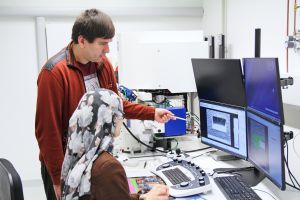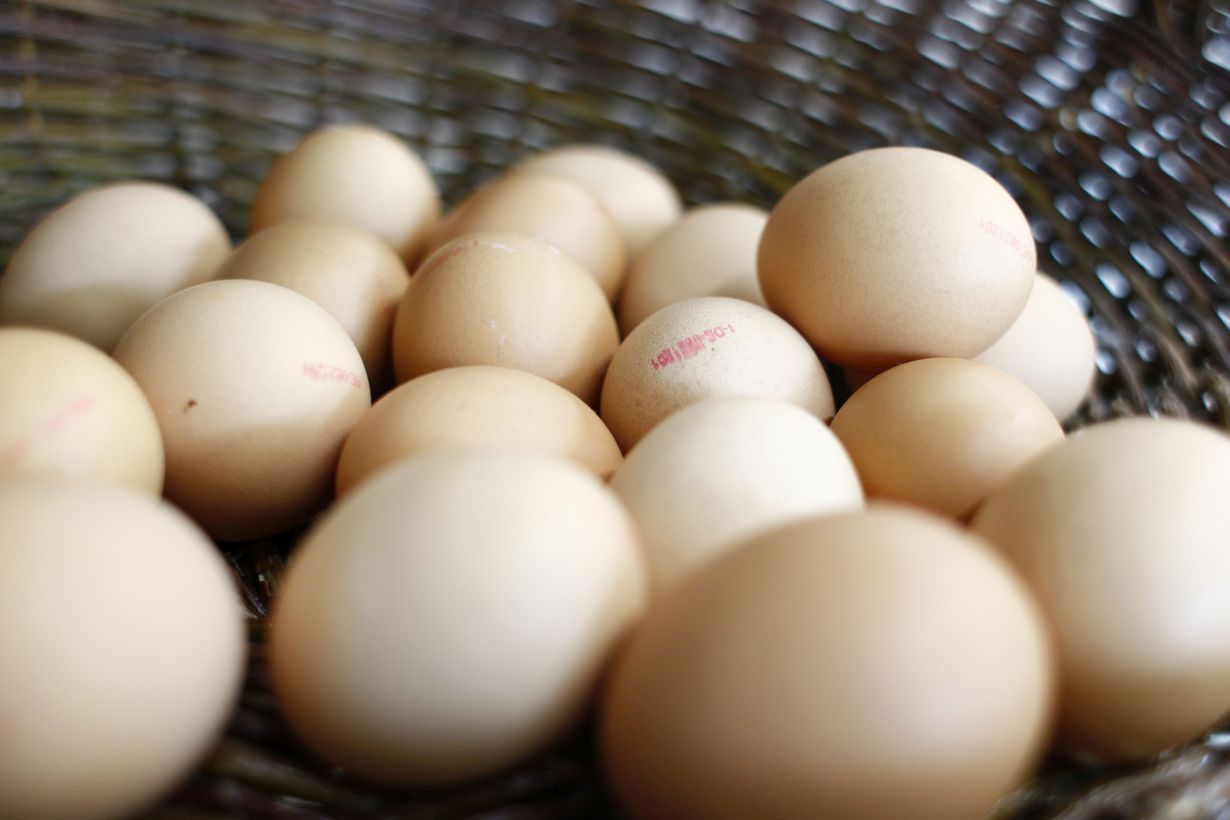Biowaste in the form of chicken eggshells has proved to be very effective for energy storage. This finding was made by an international team of researchers, including scientists of the Helmholtz Institute Ulm (HIU) established by Karlsruhe Institute of Technology (KIT). In the journal Dalton Transactions of the Royal Society of Chemistry, they present the sustainable storage material that might be used in a low-cost lithium-ion capacitor. (DOI: 10.1039/c8dt03252a)
Chicken eggs are used worldwide in large quantities in the food, pharmaceutical, and manufacturing industries. After using the eggs, however, the shells are discarded and disposed of as biowaste on landfills. The shell consists of a composite of calcium carbonate (CaCO3) and a protein-rich fiber membrane. “Surprisingly, there are constantly new examples in which natural substances are found to be suited well or even very well for producing materials for electrochemical storage systems,” says Professor Maximilian Fichtner of the Helmholtz Institute Ulm, an institution founded by KIT.

Together with Australian colleagues, Fichtner discovered the promising electrochemical properties of chicken eggshells, which are able to store lithium thanks to their large proportion of CaCO3. Fine eggshell powder was used as an electrode against a metallic lithium anode in a non-aqueous electrolyte. The test cell was found to maintain an excellent capacity retention of 92% over more than 1000 charge and discharge cycles. Both the calcified shell and the inner and outer shell membranes were used. The researchers washed, dried, and crushed the sells to a powder and obtained a conductive material.
So far, eggshell waste has been used in a number of applications, including bioceramics, cosmetics, or dye industry. The protein-rich, fibrous eggshell membrane was applied as a separator in supercapacitors. But for the first time worldwide, biowaste has now been used as an electrode. Now, further research and detailed understanding of the electrochemical and physical behavior of the material are needed to improve its performance and enable widespread use, the researchers say.
Original publication:
Minakshi, M.; Visbal, H.; Mitchell, D. R. G.; Fichtner, M.: Bio-waste chicken eggshells to store energy. 2018. Dalton transactions, 2018 (47), 16828–16834. DOI:10.1039/c8dt03252a.
https://pubs.rsc.org/en/Content/ArticleLanding/2018/DT/C8DT03252A#!divAbstract
More about the KIT Energy Center: http://www.energy.kit.edu
In close partnership with society, KIT develops solutions for urgent challenges – from climate change, energy transition and sustainable use of natural resources to artificial intelligence, sovereignty and an aging population. As The University in the Helmholtz Association, KIT unites scientific excellence from insight to application-driven research under one roof – and is thus in a unique position to drive this transformation. As a University of Excellence, KIT offers its more than 10,000 employees and 22,800 students outstanding opportunities to shape a sustainable and resilient future. KIT – Science for Impact.

